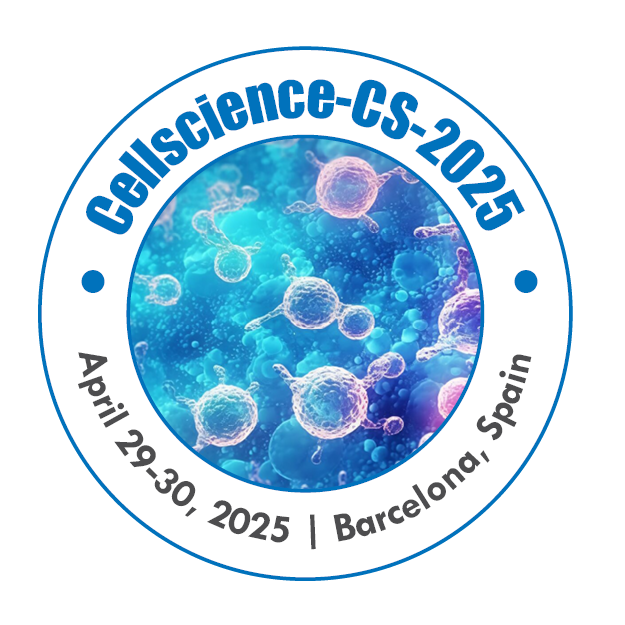Cell Cycle and Cell Division
The cell cycle is a highly regulated process that controls the growth and division of cells. It consists of several distinct phases, including interphase (G1, S, and G2 phases) and mitosis (prophase, metaphase, anaphase, and telophase), each of which is characterized by specific events and activities. Cell division, or cytokinesis, occurs at the end of the cell cycle and results in the formation of two daughter cells from a single parent cell. The cell prepares for division by growing in size (G1 phase), replicating its DNA (S phase), and continuing to grow and prepare for division (G2 phase). Chromatin condenses into chromosomes, the nuclear envelope breaks down, and the mitotic spindle forms. Chromosomes align at the metaphase plate, a plane equidistant from the two spindle poles. Sister chromatids separate and move toward opposite spindle polesThe cell cycle is regulated by a complex network of regulatory proteins, including cyclins and cyclin-dependent kinases (CDKs), which control the progression through each phase of the cycle. Dysregulation of the cell cycle can lead to uncontrolled cell division and is associated with various diseases, including cancer.
Related Conference of Cell Cycle and Cell Division
21th World Congress on Tissue Engineering Regenerative Medicine and Stem Cell Research
16th International Conference on Human Genetics and Genetic Diseases
19th International Conference on Genomics & Pharmacogenomics
Cell Cycle and Cell Division Conference Speakers
Recommended Sessions
- Stem Cell Research and Therapy
- Cell and Tissue Engineering
- Bioinformatics and Systems Biology
- Cancer Biology and Cell Signaling
- Cell Cycle and Cell Division
- Cell Migration and Invasion
- Cellular Mechanotransduction
- Cellular Metabolism and Metabolic Disorders
- CRISPR and Genome Editing Technologies
- Developmental Biology and Regenerative Medicine
- Epigenetics and Epigenomics
- Microbiome and Host Interactions
- Molecular and Cellular Immunology
- Molecular Genetics and Gene Therapy
- Molecular Pathology and Diagnostics
- Nanotechnology in Cell Biology
- Neurobiology and Neurodegenerative Diseases
- Proteomics and Protein Engineering
- Signal Transduction and Cell
- Single-Cell Analysis and Applications
- Structural Biology and Molecular Dynamics
- Synthetic Biology and Bioengineering
Related Journals
Are you interested in
- 3D Bioprinting, Organ Fabrication & Bioartificial Tissues - Stem Cell 2026 (Netherlands)
- Aging Biology, Longevity Science & Cellular Rejuvenation - Stem Cell 2026 (Netherlands)
- Animal Genetics - Genome 2026 (Singapore)
- Artificial Intelligence and Computational Biology in Regenerative Medicine - Stemgen 2026 (Japan)
- Bioinformatics and Computational Biology - Genome 2026 (Singapore)
- Bioinformatics, AI Models & Predictive Regeneration - Stem Cell 2026 (Netherlands)
- Biomarkers and Microarrays - Genome 2026 (Singapore)
- Biomaterials and Nanotechnology in Regenerative Medicine - Stemgen 2026 (Japan)
- Cancer Genomics - Genome 2026 (Singapore)
- Cancer Stem Cells & Targeted Therapeutics - Stem Cell 2026 (Netherlands)
- Cancer Stem Cells and Oncology - Stemgen 2026 (Japan)
- Cardiac, Vascular & Musculoskeletal Regeneration - Stem Cell 2026 (Netherlands)
- Cardiovascular Regeneration - Stemgen 2026 (Japan)
- Clinical genomics - Genome 2026 (Singapore)
- Clinical Translation of Stem Cell Therapies - Stem Cell 2026 (Netherlands)
- Clinical Trials and Translational Stem Cell Research - Stemgen 2026 (Japan)
- Commercialization, Biobanking & Industry Innovations - Stem Cell 2026 (Netherlands)
- Comparative Genomics - Genome 2026 (Singapore)
- Epigenomics and Epigenetics - Genome 2026 (Singapore)
- Ethical, Legal, and Social Implications in Stem Cell Research - Stemgen 2026 (Japan)
- Ethical, Regulatory & Quality Control Frameworks - Stem Cell 2026 (Netherlands)
- Exosomes, Extracellular Vesicles & Cell-Free Therapeutics - Stem Cell 2026 (Netherlands)
- Functional Genomics - Genome 2026 (Singapore)
- Future Trends: Organoids, Bioengineering, and Next-Generation Therapies - Stemgen 2026 (Japan)
- Gene Editing and CRISPR Technologies - Stemgen 2026 (Japan)
- Gene Editing and Genetic Engineering - Genome 2026 (Singapore)
- Gene Editing, CRISPR Therapies & Regenerative Genomics - Stem Cell 2026 (Netherlands)
- Genetic Disorder - Genome 2026 (Singapore)
- Genomic Instability - Genome 2026 (Singapore)
- Genomic Medicine - Genome 2026 (Singapore)
- Induced Pluripotent Stem Cells (iPSCs) and Reprogramming - Stemgen 2026 (Japan)
- Mesenchymal Stem Cells (MSCs) in Therapy - Stemgen 2026 (Japan)
- Microbial Genomics - Genome 2026 (Singapore)
- Next generation sequencing - Genome 2026 (Singapore)
- Nutrigenomics - Genome 2026 (Singapore)
- Personalized and Regenerative Medicine - Genome 2026 (Singapore)
- Pharmacogenomics - Genome 2026 (Singapore)
- Plant Genomics and Molecular Pharming - Genome 2026 (Singapore)
- Regeneration in Neurodegenerative & Spinal Cord Disorders - Stem Cell 2026 (Netherlands)
- Regenerative Approaches in Diabetes & Metabolic Disorders - Stem Cell 2026 (Netherlands)
- Regenerative Dentistry and Craniofacial Applications - Stemgen 2026 (Japan)
- Regenerative Immunology & Immune Modulation - Stem Cell 2026 (Netherlands)
- Regenerative Medicine and Tissue Engineering - Stemgen 2026 (Japan)
- Stem Cell Banking and Cryopreservation - Stemgen 2026 (Japan)
- Stem Cell Biology and Cellular Mechanisms - Stemgen 2026 (Japan)
- Stem Cell Engineering & Cellular Reprogramming - Stem Cell 2026 (Netherlands)
- Stem Cells in Neurological and Neurodegenerative Disorders - Stemgen 2026 (Japan)
- Structural Genomics - Genome 2026 (Singapore)
- Tissue Engineering, Biomaterials & Smart Scaffolds - Stem Cell 2026 (Netherlands)
- Trends in Genomics and Pharmacogenomics - Genome 2026 (Singapore)

